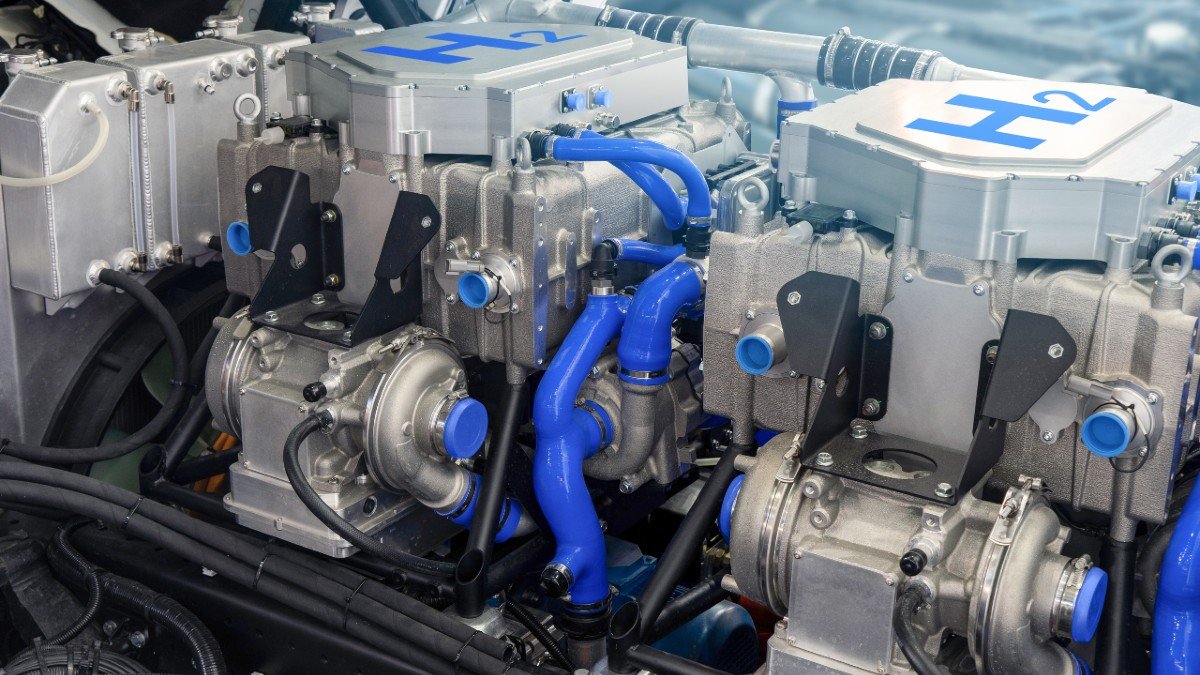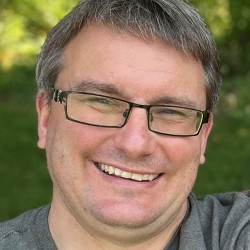Creating clean energy technology
As the world prepares for COP26, we focus on University research tackling climate catastrophe. Today, we meet Professor John Varcoe, who’s helping create the next generation of ionic membranes for clean energy technologies.

John's research champions the emerging technology of hydrogen fuel cells as a clean source of energy
A long-time academic in our Department of Chemistry, John’s current research projects focus on developing materials for sustainable electrochemical technologies – and, as he reports, one research area could eventually provide a carbon negative option.
Hydrogen power
“One area we’re researching is hydrogen fuel cells,” says John. “One of the advantages of these is that they use hydrogen and atmospheric oxygen in a non-combustion process to produce energy, heat and water. It’s a clean energy source that does not emit the 'greenhouse gas' carbon dioxide if the hydrogen is produced from electrolysis of water using renewable electricity.
“We create a polymer membrane to act as a key component of such a fuel cell. The polymers, which are made cheaply in the lab, allow fuel cells to be developed with minimal use of scare precious metals, such as platinum. Our alkaline membrane fuel cell concept facilitates the use of earth-abundant metal catalysts.
“Our projects in this field are in partnership with local company AFC Energy in Dunsfold and Newcastle University.”
Carbon negative energy generation
John continues: “Another initiative we’re involved in, this time with lead partner Denmark Technical University and several other international collaborators, is the SELECTC02 Project.
“The goal here is to take damaging carbon dioxide out of the atmosphere and, through a process of electrochemical reduction, turn it into high value chemicals. This could be ethanol or ethylene that can be used to produce other products.
“We’re also aiming to develop an enhanced electrolysis device to enable this process on a mass scale. If we can get this and the supporting technology right, it could be a carbon negative success story.”
Power from salt water
“We’re also involved in a venture with the University of Edinburgh and Eindhoven University of Technology to create clean energy using a process called reverse electrodialysis (RED),” adds John. “This technology has been relatively neglected to date, but it has real potential.
“Simply put, electricity is generated when waters of different salinities – or saltiness – are mixed inside a RED cell stack. This can be from mixing combinations of industrial waste brines, seawater or river water."
New and emerging technologies
John concludes: “We’re essentially involved in research that is coming online now, such as the hydrogen cells, and emerging sustainable technologies, such as turning Co2 into high-value chemicals and creating energy via RED technology, that may be online in one or two decades.
“It’s an exciting time to be involved in these clean and emerging technologies.”
Learn more about Professor John Varcoe’s research.
Featured Academics
Media Contacts
External Communications and PR team
Phone: +44 (0)1483 684380 / 688914 / 684378
Email: mediarelations@surrey.ac.uk
Out of hours: +44 (0)7773 479911


